
Recent Work
2146 items
Virginia: Who Pays? 6th Edition
October 17, 2018 • By ITEP Staff
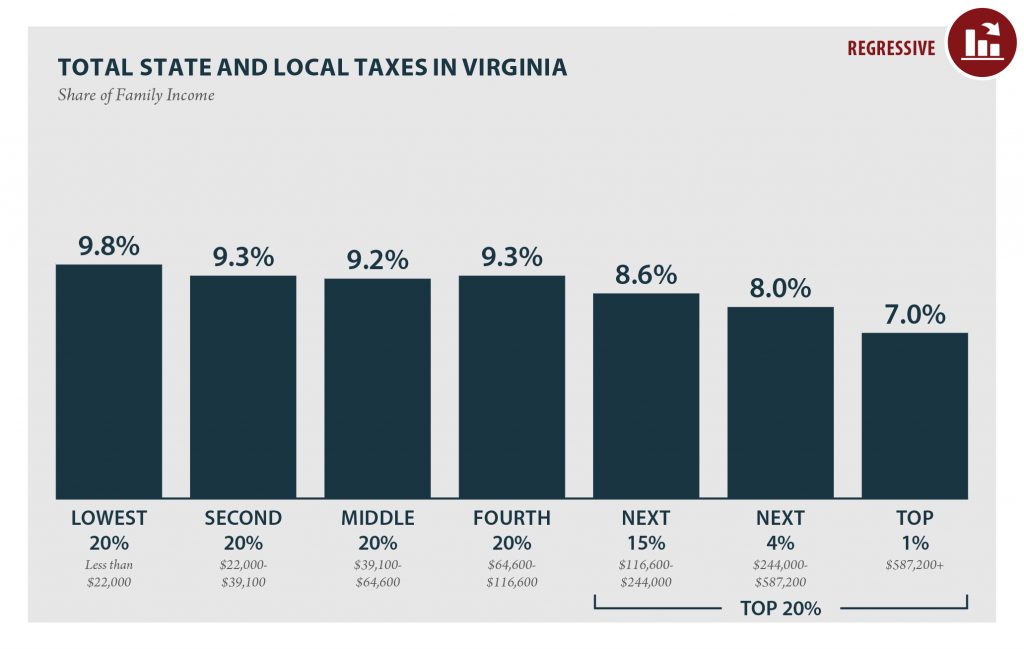
VIRGINIA Read as PDF VIRGINIA STATE AND LOCAL TAXES Taxes as Share of Family Income Top 20% Income Group Lowest 20% Second 20% Middle 20% Fourth 20% Next 15% Next 4% Top 1% Income Range Less than $22,000 $22,000 to $39,100 $39,100 to $64,600 $64,600 to $116,600 $116,600 to $244,000 $244,000 to $587,200 over $587,200 […]
North Carolina: Who Pays? 6th Edition
October 17, 2018 • By ITEP Staff
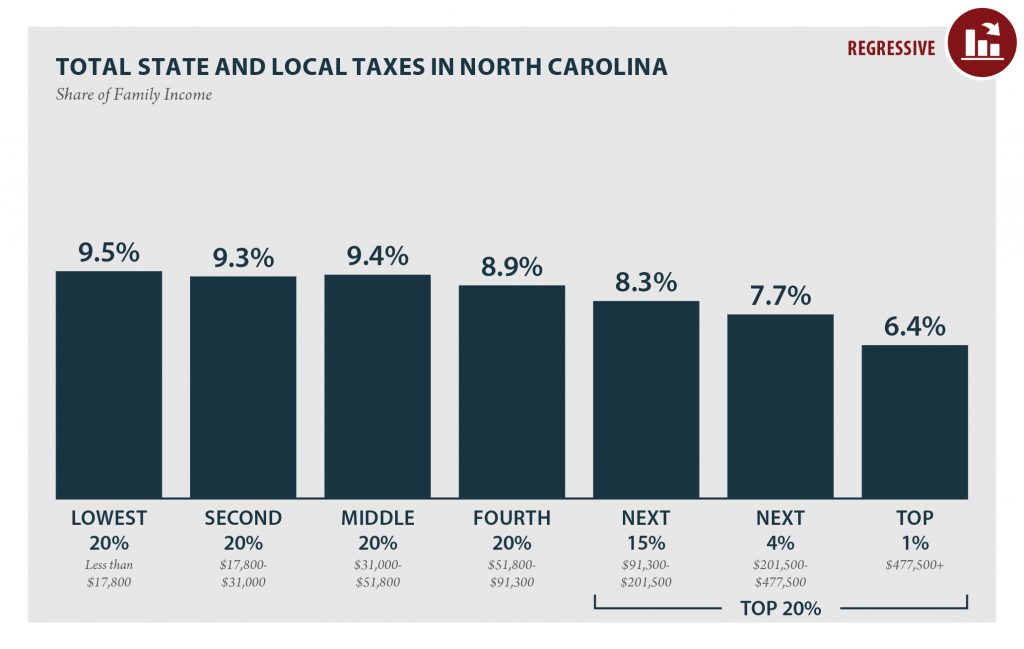
NORTH CAROLINA Read as PDF NORTH CAROLINA STATE AND LOCAL TAXES Taxes as Share of Family Income Top 20% Income Group Lowest 20% Second 20% Middle 20% Fourth 20% Next 15% Next 4% Top 1% Income Range Less than $17,800 $17,800 to $31,000 $31,000 to $51,800 $51,800 to $91,300 $91,300 to $201,500 $201,500 to $477,500 […]
New Mexico: Who Pays? 6th Edition
October 17, 2018 • By ITEP Staff
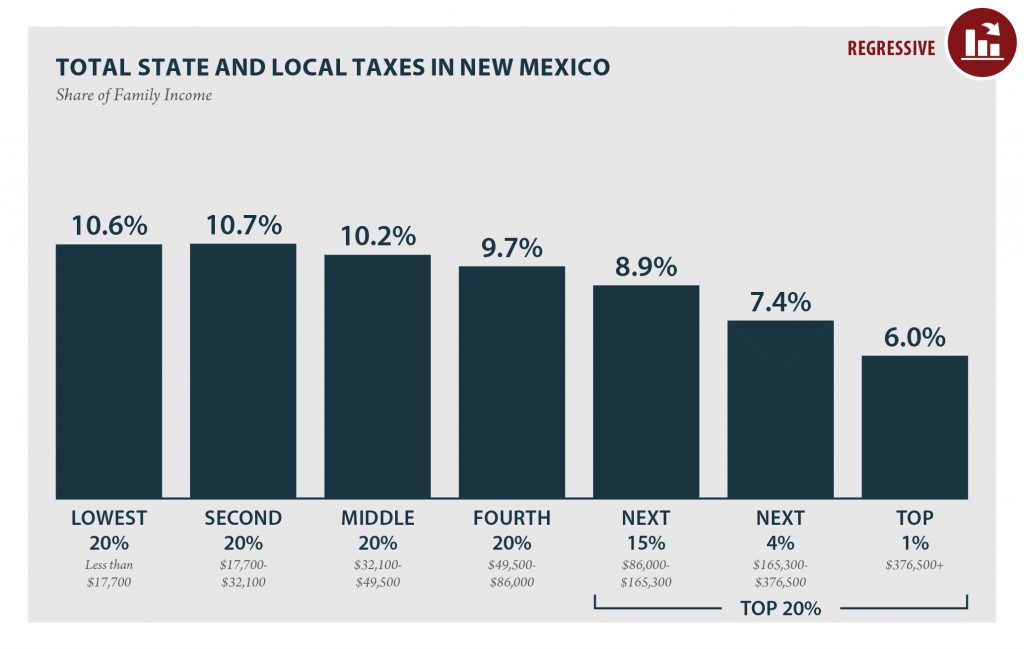
NEW MEXICO Read as PDF NEW MEXICO STATE AND LOCAL TAXES Taxes as Share of Family Income Top 20% Income Group Lowest 20% Second 20% Middle 20% Fourth 20% Next 15% Next 4% Top 1% Income Range Less than $17,700 $17,700 to $32,100 $32,100 to $49,500 $49,500 to $86,000 $86,000 to $165,300 $165,300 to $376,500 […]
Alaska: Who Pays? 6th Edition
October 17, 2018 • By ITEP Staff
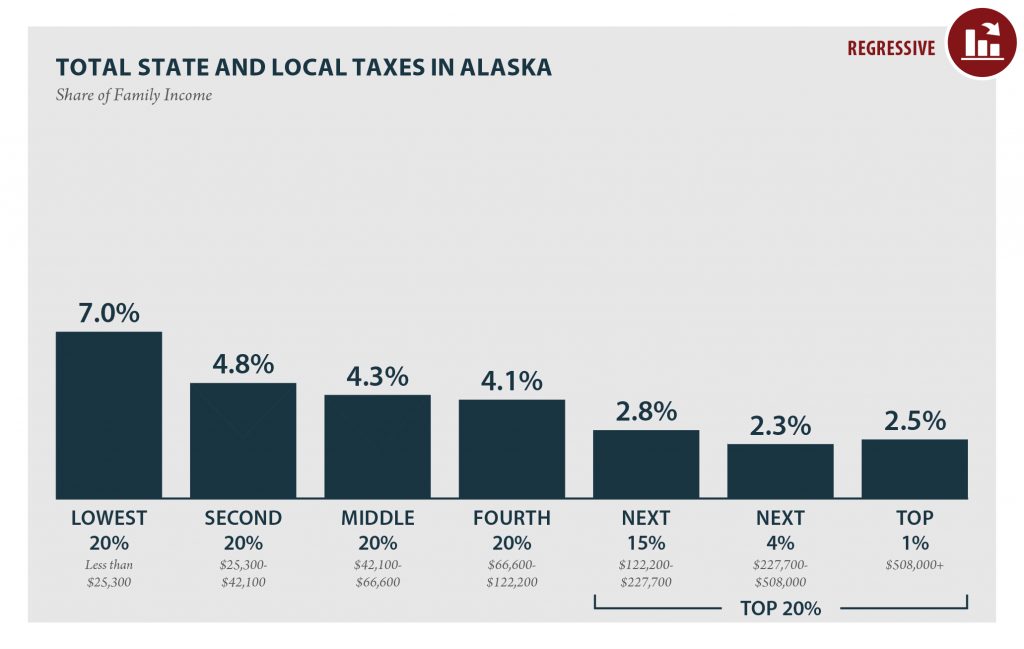
ALASKA Read as PDF ALASKA STATE AND LOCAL TAXES Taxes as Share of Family Income Top 20% Income Group Lowest 20% Second 20% Middle 20% Fourth 20% Next 15% Next 4% Top 1% Income Range Less than $25,300 $25,300 to $42,100 $42,100 to $66,600 $66,600 to $122,200 $122,200 to $227,700 $227,700 to $508,000 over $508,000 […]
California: Who Pays? 6th Edition
October 17, 2018 • By ITEP Staff
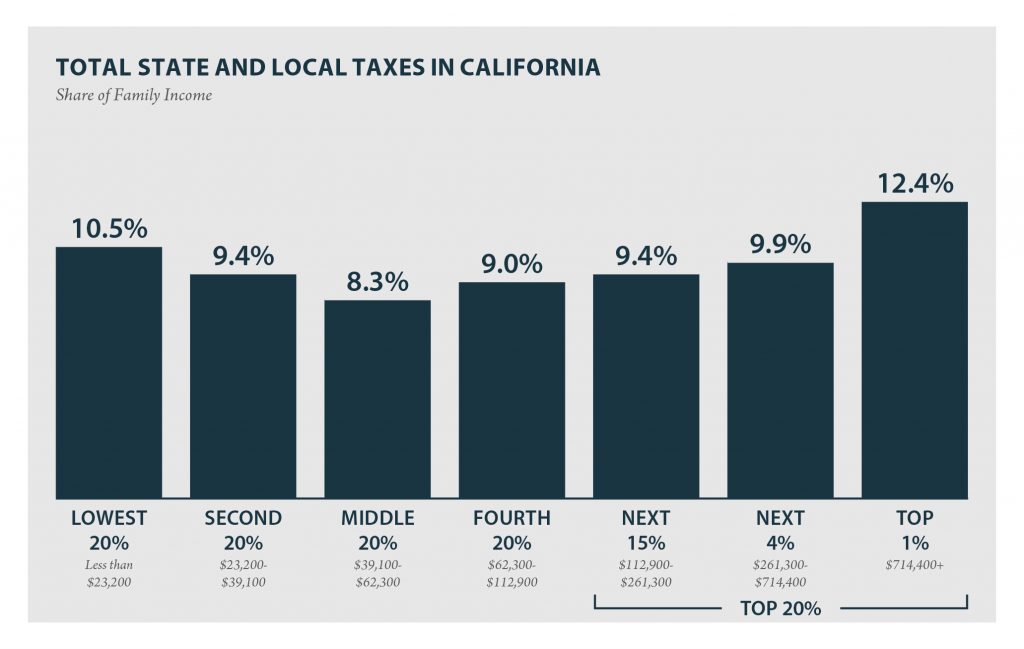
CALIFORNIA Read as PDF CALIFORNIA STATE AND LOCAL TAXES Taxes as Share of Family Income Top 20% Income Group Lowest 20% Second 20% Middle 20% Fourth 20% Next 15% Next 4% Top 1% Income Range Less than $23,200 $23,200 to $39,100 $39,100 to $62,300 $62,300 to $112,900 $112,900 to $261,300 $261,300 to $714,400 over $714,400 […]
Vermont: Who Pays? 6th Edition
October 17, 2018 • By ITEP Staff
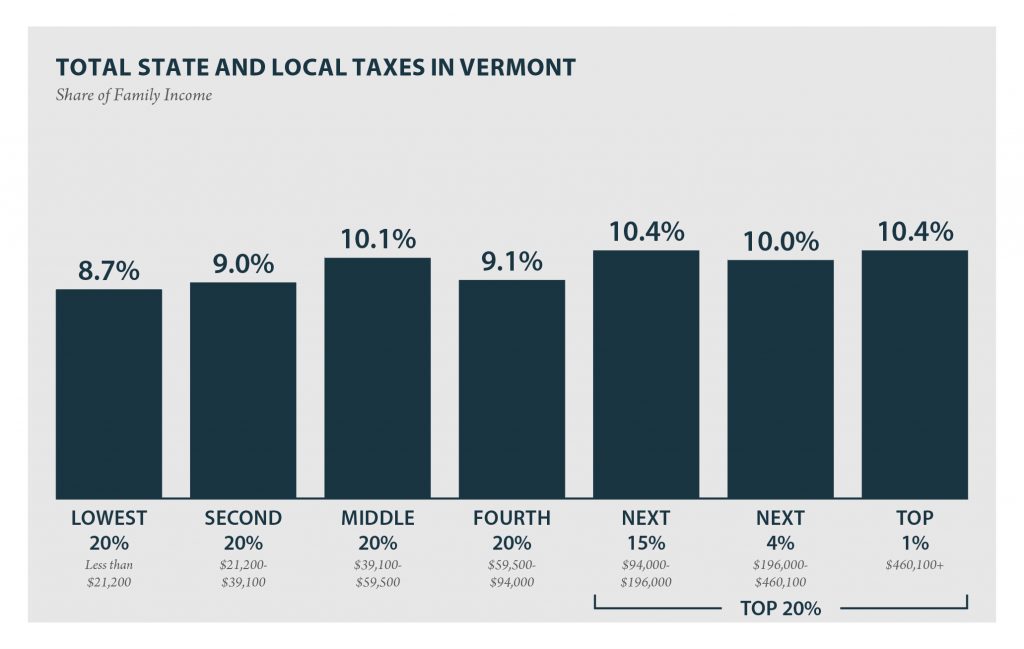
VERMONT Read as PDF VERMONT STATE AND LOCAL TAXES Taxes as Share of Family Income Top 20% Income Group Lowest 20% Second 20% Middle 20% Fourth 20% Next 15% Next 4% Top 1% Income Range Less than $21,200 $21,200 to $39,100 $39,100 to $59,500 $59,500 to $94,000 $94,000 to $196,000 $196,000 to $460,100 over $460,100 […]
Hawaii: Who Pays? 6th Edition
October 17, 2018 • By ITEP Staff
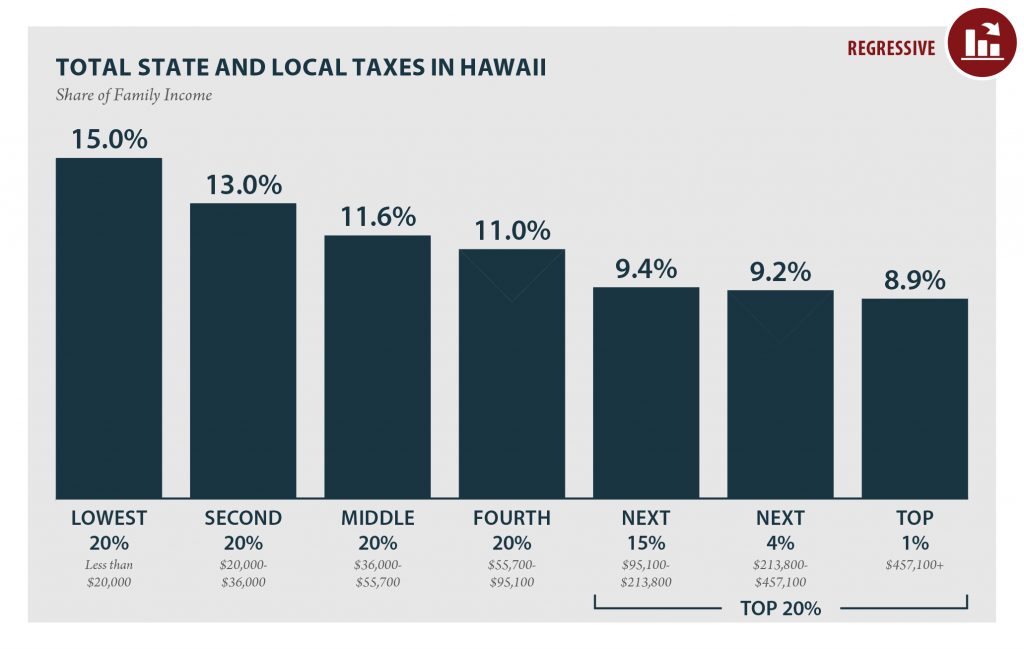
HAWAII Read as PDF HAWAII STATE AND LOCAL TAXES Taxes as Share of Family Income Top 20% Income Group Lowest 20% Second 20% Middle 20% Fourth 20% Next 15% Next 4% Top 1% Income Range Less than $20,000 $20,000 to $36,000 $36,000 to $55,700 $55,700 to $95,100 $95,100 to $213,800 $213,800 to $457,100 over $457,100 […]
Kentucky: Who Pays? 6th Edition
October 17, 2018 • By ITEP Staff
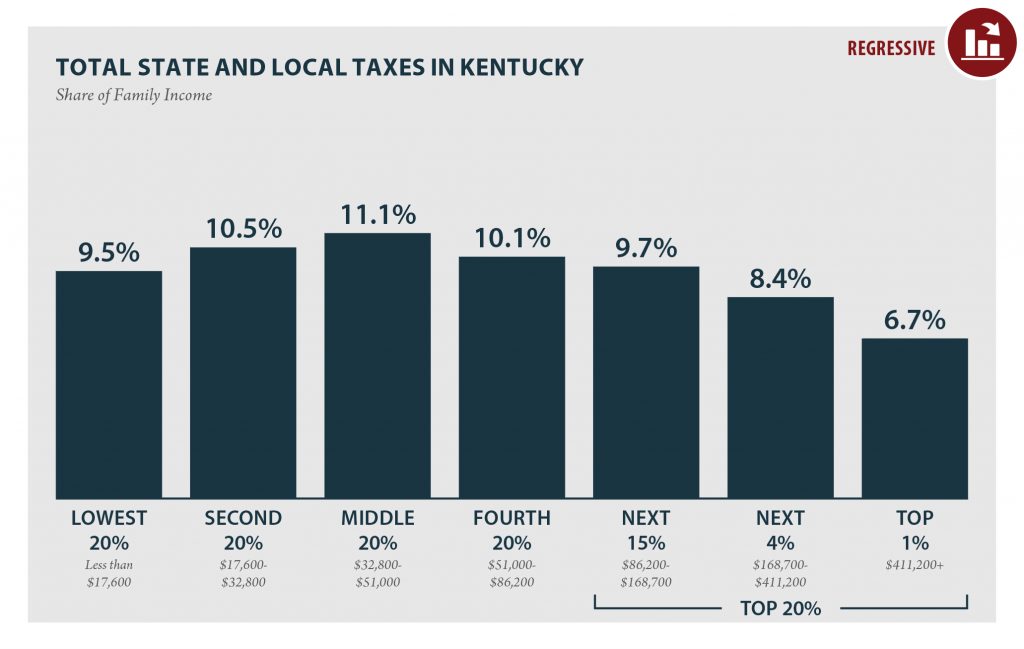
According to ITEP’s Tax Inequality Index, which measures the impact of each state’s tax system on income inequality, Kentucky has the 25th most unfair state and local tax system in the country. Incomes are more unequal in Kentucky after state and local taxes are collected than before.
Oregon: Who Pays? 6th Edition
October 17, 2018 • By ITEP Staff
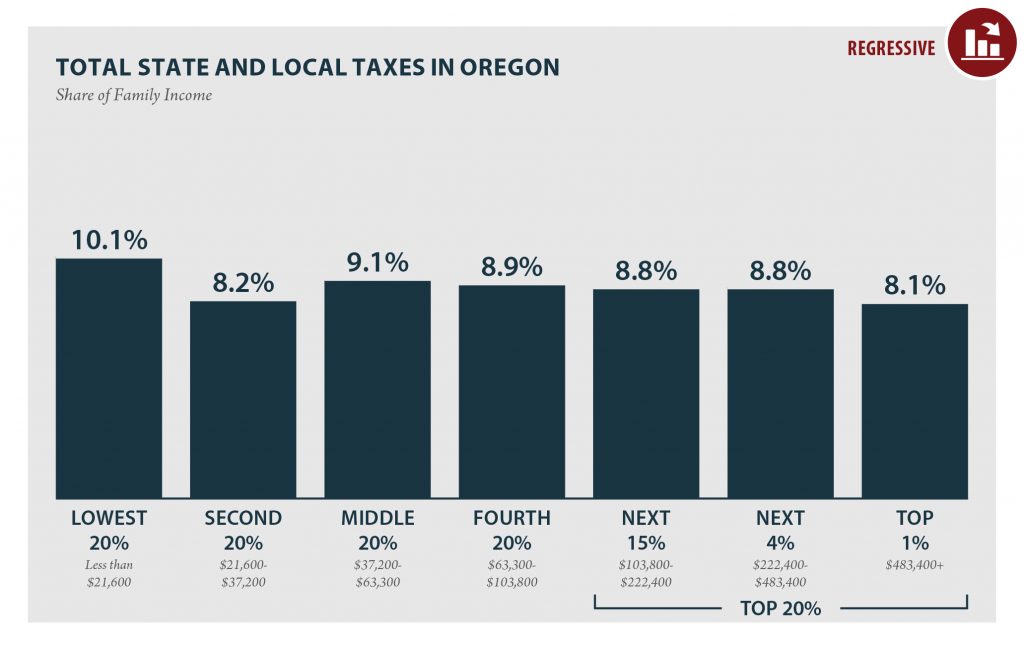
OREGON Read as PDF OREGON STATE AND LOCAL TAXES Taxes as Share of Family Income Top 20% Income Group Lowest 20% Second 20% Middle 20% Fourth 20% Next 15% Next 4% Top 1% Income Range Less than $21,600 $21,600 to $37,200 $37,200 to $63,300 $63,300 to $103,800 $103,800 to $222,400 $222,400 to $483,400 over $483,400 […]
Ohio: Who Pays? 6th Edition
October 17, 2018 • By ITEP Staff
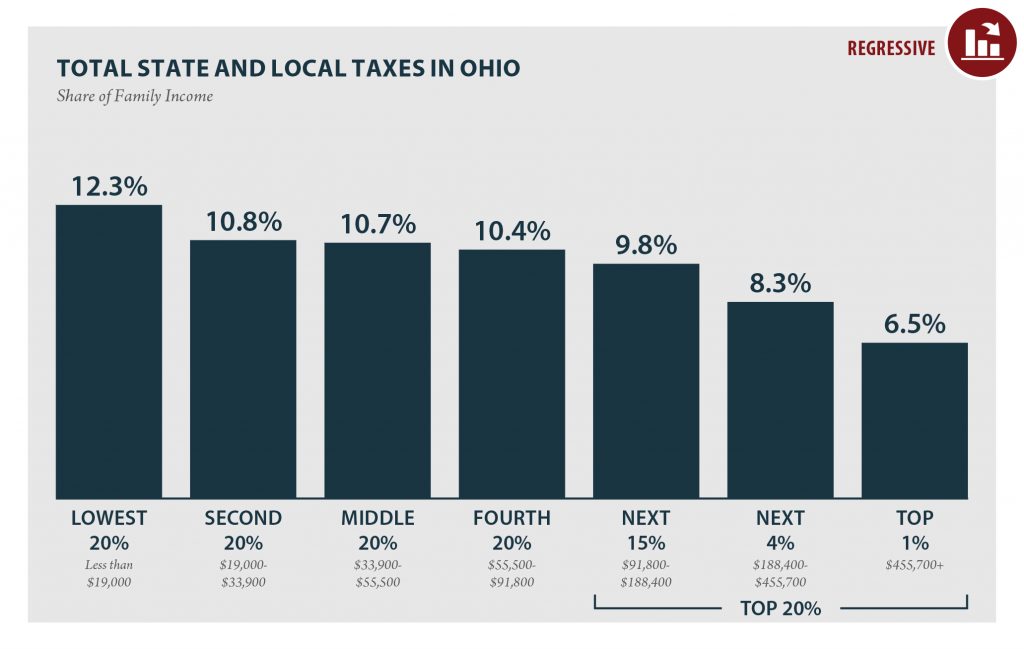
OHIO Read as PDF OHIO STATE AND LOCAL TAXES Taxes as Share of Family Income Top 20% Income Group Lowest 20% Second 20% Middle 20% Fourth 20% Next 15% Next 4% Top 1% Income Range Less than $19,000 $19,000 to $33,900 $33,900 to $55,500 $55,500 to $91,800 $91,800 to $188,400 $188,400 to $455,700 over $455,700 […]
Montana: Who Pays? 6th Edition
October 17, 2018 • By ITEP Staff
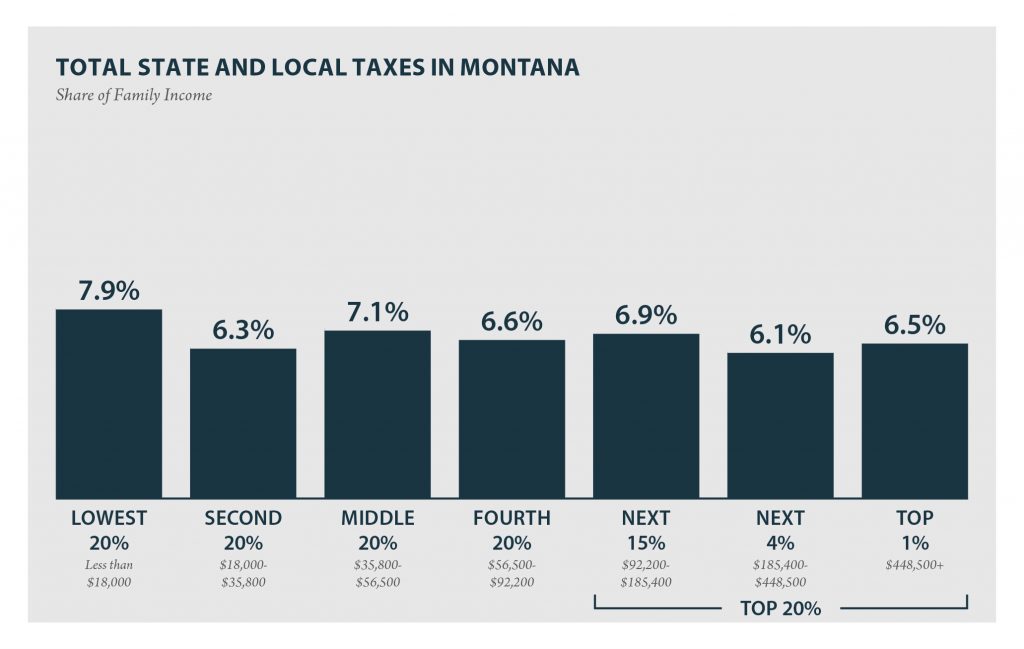
According to ITEP’s Tax Inequality Index, Montana’s state and local tax system does not worsen income inequality and ranks 43rd on the index. The large income gap between lower- and middle-income taxpayers, as compared to the wealthy, is somewhat narrower after state and local taxes than before.
Maine: Who Pays? 6th Edition
October 17, 2018 • By ITEP Staff
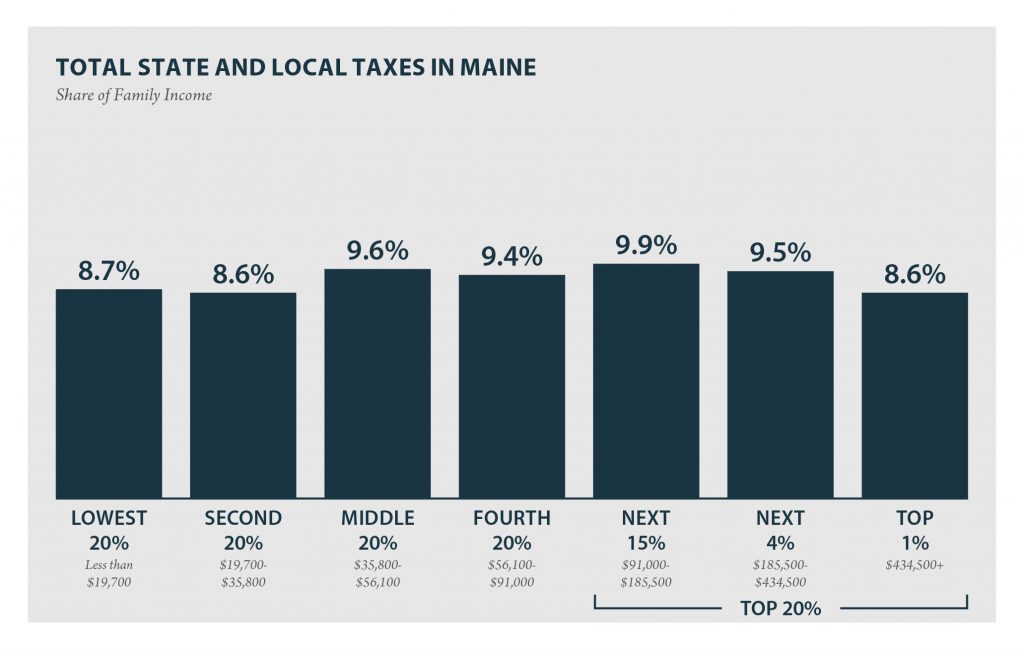
MAINE Read as PDF MAINE STATE AND LOCAL TAXES Taxes as Share of Family Income Top 20% Income Group Lowest 20% Second 20% Middle 20% Fourth 20% Next 15% Next 4% Top 1% Income Range Less than $19,700 $19,700 to $35,800 $35,800 to $56,100 $56,100 to $91,000 $91,000 to $185,500 $185,500 to $434,500 over $434,500 […]
South Carolina: Who Pays? 6th Edition
October 17, 2018 • By ITEP Staff
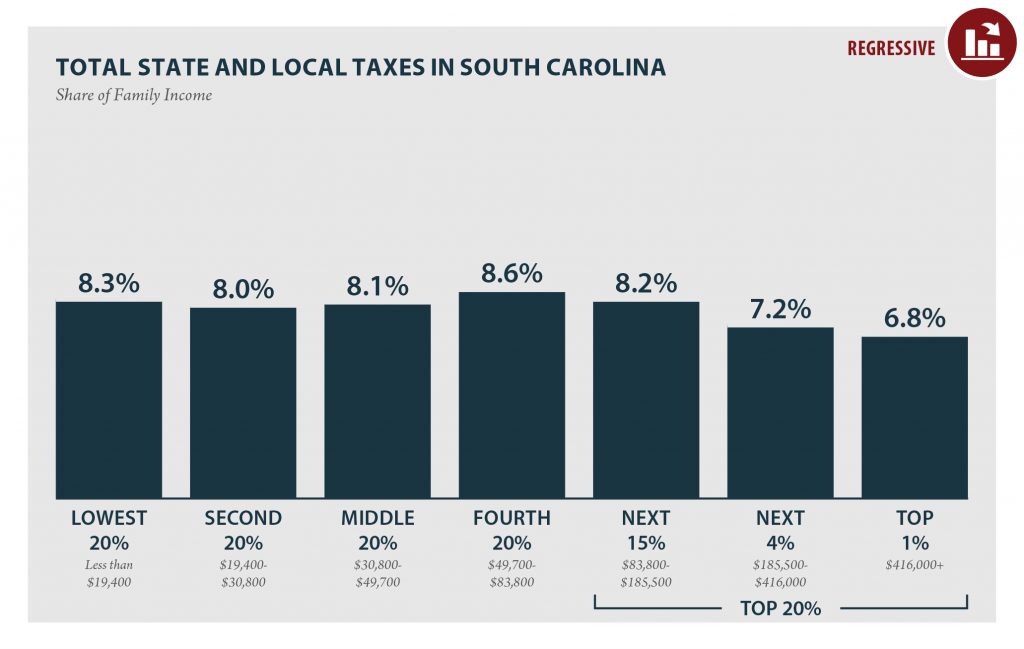
SOUTH CAROLINA Read as PDF SOUTH CAROLINA STATE AND LOCAL TAXES Taxes as Share of Family Income Top 20% Income Group Lowest 20% Second 20% Middle 20% Fourth 20% Next 15% Next 4% Top 1% Income Range Less than $19,400 $19,400 to $30,800 $30,800 to $49,700 $49,700 to $83,800 $83,800 to $185,500 $185,500 to $416,000 […]
New Jersey: Who Pays? 6th Edition
October 17, 2018 • By ITEP Staff
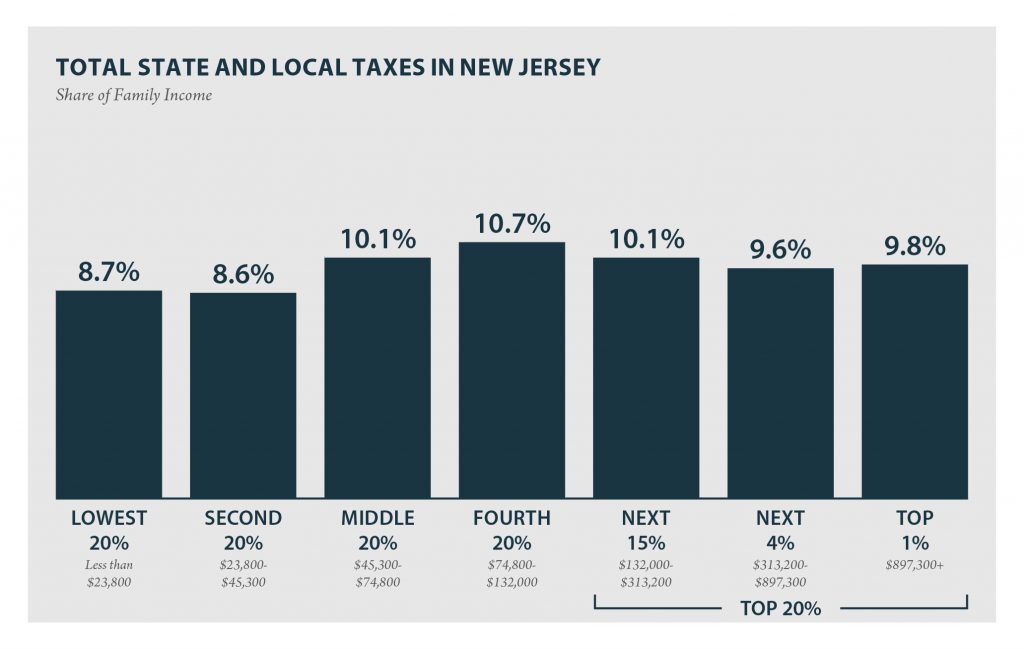
According to ITEP’s Tax Inequality Index, New Jersey’s state and local tax system does not worsen income inequality and ranks 46th on the index. The large income gap between lower- and middle-income taxpayers, as compared to the wealthy, is somewhat narrower after state and local taxes than before.
Maryland: Who Pays? 6th Edition
October 17, 2018 • By ITEP Staff
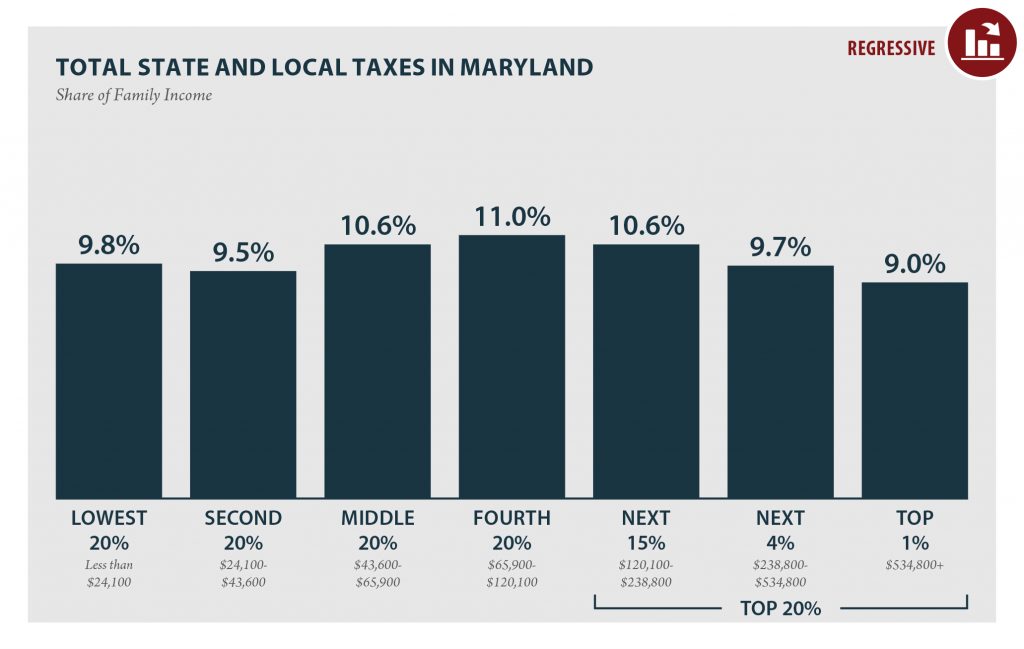
MARYLAND Read as PDF MARYLAND STATE AND LOCAL TAXES Taxes as Share of Family Income Top 20% Income Group Lowest 20% Second 20% Middle 20% Fourth 20% Next 15% Next 4% Top 1% Income Range Less than $24,100 $24,100 to $43,600 $43,600 to $65,900 $65,900 to $120,100 $120,100 to $238,800 $238,800 to $534,800 over $534,800 […]
